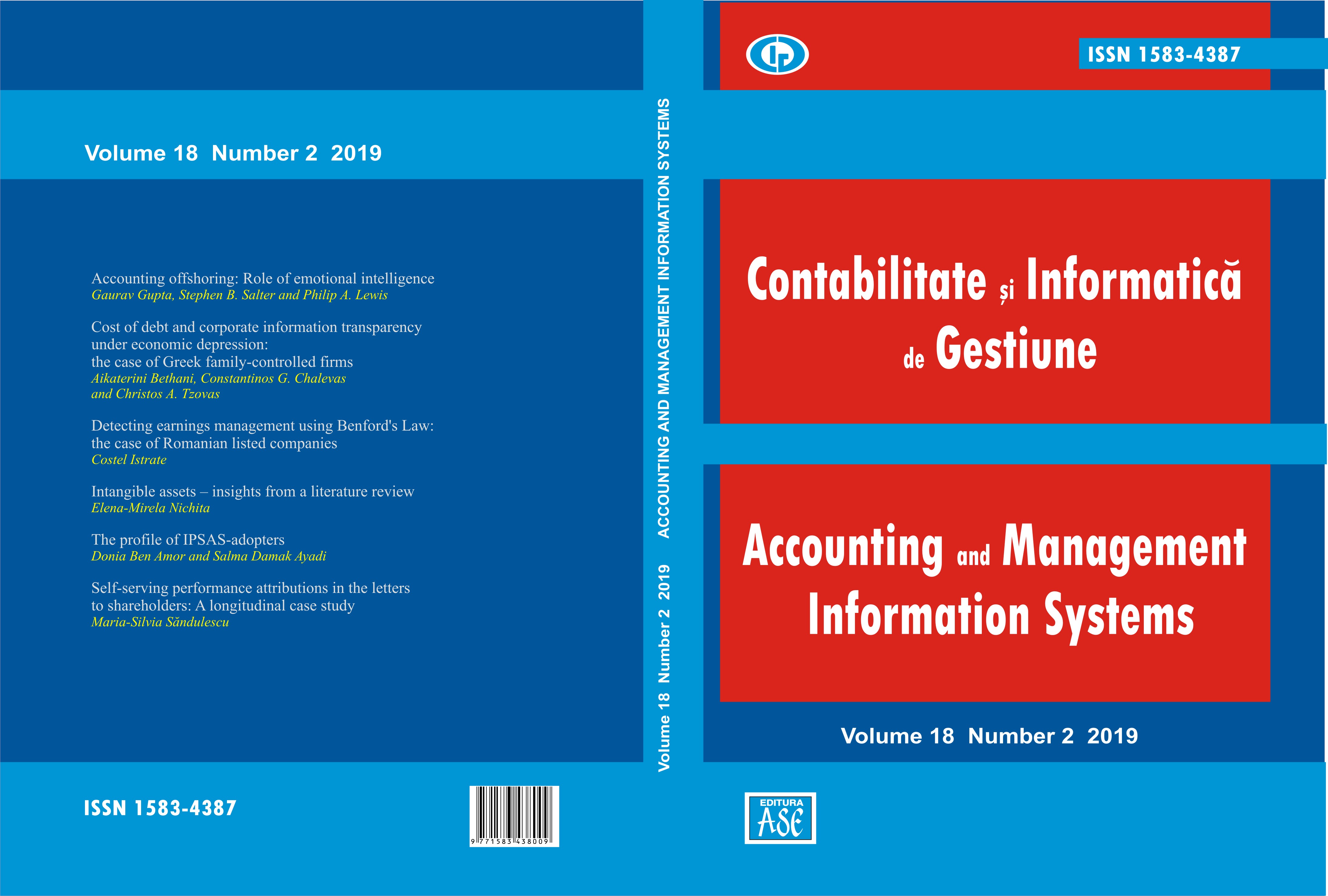Self-serving performance attributions
in the letters to shareholders:
A longitudinal case study
Self-serving performance attributions
in the letters to shareholders:
A longitudinal case study
Author(s): Maria-Silvia SăndulescuSubject(s): Accounting - Business Administration
Published by: EDITURA ASE
Keywords: attribution theory;case study; impression management; letter to shareholders; privatization;
Summary/Abstract: Research Question: How are post-privatization corporate narratives used by the companies in framing their financial performance? Motivation: This research departs from previous literature that scrutinized the use of narratives in the context of corporate privatizations (Craig & Amernic, 2008). The study adopts a social-psychology perspective on impression management (Leary & Kowalski, 1990), drawing on the attributional repertoire developed by Aerts (2005) in order to analyse the causal explanations of performance outcomes. Idea: This paper relies on the case of OMV Petrom with a view of analysing the evolution of the messages used in framing the success of the company. Data: The letters to shareholders issued by the company from 2005 to 2011 were considered. Tools: A manual content analysis was performed in order to identify the causal attributions of performance outcomes. The enriched self-serving explanatory patterns (i.e. entitlement, enhancement, excuse, justification and causality denial) were evaluated. Findings: The results confirm the use of assertive and defensive tactics in framing performance upturns and downturns. Moreover, the decrease in the financial performance was presented by highlighting the negative influence of external factors which was counterbalanced by remedial actions. Contribution: The paper contributes to the impression management literature by using the context of a forced privatization as a means of providing explanations. The study illustrates the use of additional techniques in framing negative results which may further extend the attributional repertoire developed by previous researchers.
Journal: Journal of Accounting and Management Information Systems
- Issue Year: 18/2019
- Issue No: 2
- Page Range: 283-301
- Page Count: 19
- Language: English

